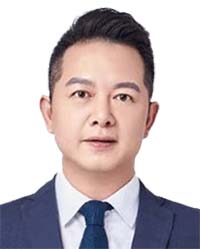Webinar Series
FinTech Lending and Cashless Payments
2022
Session Chair: Yi HUANG
Professor of Finance, Fudan University and Fellow of ABFER
Yao ZENG, Assistant Professor of Finance, Wharton School, University of Pennsylvania
Co-authors:
Pulak GHOSH, Professor in the Decision Sciences Area, Indian Institute of Management Bangalore
Boris VALLEE, Torstein Hagen Associate Professor of Business Administration, Harvard Business School, Harvard University
Tiffany TSAI, Assistant Professor, Department of Economics, National University of Singapore
Speakers
-

Yao ZENG
Assistant Professor of Finance, Wharton School, University of Pennsylvania
Yao Zeng is an Assistant Professor of Finance at the Wharton School, the University of Pennsylvania, and also a policy consultant to the Financial Stability Board. He works on the intersection of asset pricing and corporate finance with a focus on financial intermediation. His current research explores the interaction between banks and various non-banks including mutual funds, ETFs, and various FinTech companies, and has been published in leading journals including the Journal of Finance, the Journal of Financial Economics, and the Review of Financial Studies. He received his Ph.D. in Economics from Harvard University in 2016.
-

Tiffany TSAI
Assistant Professor of Economics, Department of Economics, National University of Singapore
Tiffany joined the Department of Economics at the National University of Singapore as an assistant professor in 2019. Before joining NUS, she obtained a Ph.D. in Economics from UC Berkeley. Her main research areas are industrial organization and digital economy, focusing on market structure, pricing, and Fintech. -

Yi HUANG
Professor of Finance, Fudan University
Yi Huang was Pictet Chair in Finance and Development at the Graduate Institute of International and Development Studies. He was an economist in the Research Department of the IMF and a research associate of Globalization and Monetary Policy Institution in the Federal Reserve Bank of Dallas. He also has been a visiting PhD student at the UC-Berkeley and a research fellow at the Hong Kong Institute for Monetary Research as well as the visiting positions at the London Business School, MIT Sloan School of Management. Prof. Huang also serves at the Council on Global Economic Imbalances at the World Economic Forum.
Professor Huang’s research consists of international macro and finance; labor-macro- Finance and Fintech and Entrepreneurship. His recent research focuses on the influence of corporation’s financing and investment to financial market and labor market.
Professor Huang gained his Master’s degree from the China Center for Economics Research, Peking University, and his Ph.D. in International Macroeconomic and Finance from the London Business School.
- 1
Session Format
Each session lasts for 1 hour 10 minutes (25 minutes for the author, 25 minutes for the discussion and 20 minutes for participants' Q&A). Sessions will be recorded and posted on ABFER's web, except in cases where speakers or discussants request us not to.
Registration
Registration has closed. Please visit the main page for details on next webinar.

